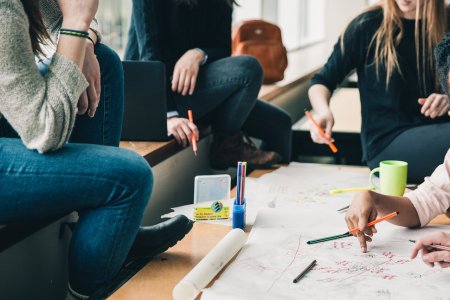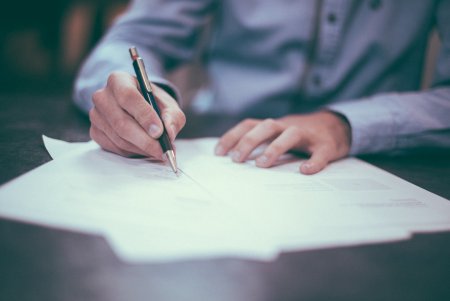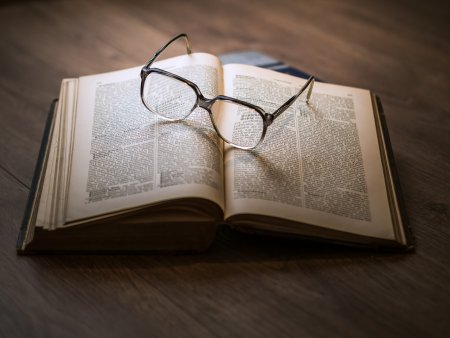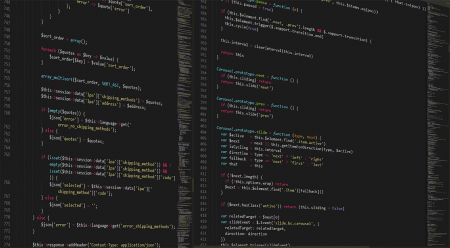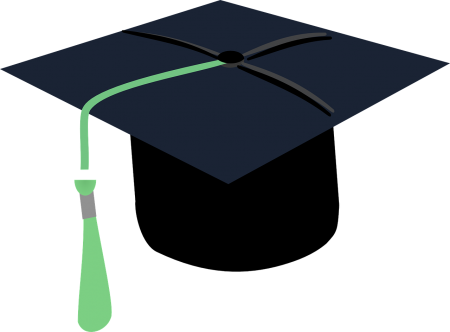маленький рассказ на английском языке о системе образования в России
Маленькой рассказ на британском языке о системе образования в России
1 ответ
Альбина Ежина
Citizens of Russia have the right to education which is guaranteed by the Constitution and ensured by the broad development of compulsory secondary education, vocational, specialised secondary and higher education, by the development of correspondence and evening courses, by the provisions of state scholarships, grants and privileges for students.
In Russia there is a nine-year compulsory education, but to enter a university one has to study two years more.
School-starts at the age of six for Russian children. But most of them have learnt letters in kindergarten which is now part of primary school. Primary and secondary schools together comprise eleven years of study. Every school has a "core curriculum" of Russian, mathematics, sciences, PT. A variety of subjects are taught at lyceums and gymnasiums.
After finishing secondary school, lyceum or gymnasium one can go on to higher education. All applicants must take competitive examinations. Entrance examinations are held in July and August. Higher educational institutions are headed by Rectors. Vice-rectors are in charge of the academic and scientific work. Higher educational institutions train undergraduates and graduate students in one or several specialisation's. The faculties are headed by the Deans. There are departments within faculties. The system of higher education in Russia is going through a transitional period. The main objectives of the reform are: decentralisation of the higher education system, development of the autonomy of higher educational institutions, expansion of academic freedoms of faculties and students, development of new financial mechanism. All Russian schools until recently were state-subsidised.
In the terms of the ration of students to the total population Russia ranks among the top ten countries in the world.
The Russian educational policy is a combination of economic and social objectives. An educated person contributes more to the society and education on the other хэнд gives a person the prospect for professional advance. The citizens of Russia show a great concern for education for themselves and their children.
Institutions of higher education include: technical training, schools, teachers training colleges, universities which offer master's and doctoral degrees programmes.
The faculties have specialised councils for conferring advanced academic degrees.
In Russia there is a nine-year compulsory education, but to enter a university one has to study two years more.
School-starts at the age of six for Russian children. But most of them have learnt letters in kindergarten which is now part of primary school. Primary and secondary schools together comprise eleven years of study. Every school has a "core curriculum" of Russian, mathematics, sciences, PT. A variety of subjects are taught at lyceums and gymnasiums.
After finishing secondary school, lyceum or gymnasium one can go on to higher education. All applicants must take competitive examinations. Entrance examinations are held in July and August. Higher educational institutions are headed by Rectors. Vice-rectors are in charge of the academic and scientific work. Higher educational institutions train undergraduates and graduate students in one or several specialisation's. The faculties are headed by the Deans. There are departments within faculties. The system of higher education in Russia is going through a transitional period. The main objectives of the reform are: decentralisation of the higher education system, development of the autonomy of higher educational institutions, expansion of academic freedoms of faculties and students, development of new financial mechanism. All Russian schools until recently were state-subsidised.
In the terms of the ration of students to the total population Russia ranks among the top ten countries in the world.
The Russian educational policy is a combination of economic and social objectives. An educated person contributes more to the society and education on the other хэнд gives a person the prospect for professional advance. The citizens of Russia show a great concern for education for themselves and their children.
Institutions of higher education include: technical training, schools, teachers training colleges, universities which offer master's and doctoral degrees programmes.
The faculties have specialised councils for conferring advanced academic degrees.
, оставишь ответ?
Похожие вопросы
-
Вопросы ответы
Новое
NEW
Статьи
Информатика
Статьи
Последние вопросы
Двум малярам Диме И Олегу поручили выкрасить фасад дома они разделили
Разные вопросы.
найти порядковый номер 41Э если в ядре 20 нейтронов
Разные вопросы.
в ряду натуральных чисел 3, 8, 10, 24, … 18 одно
Математика.
Предприятие по производству с/хоз продукции на производство затратило 3527000 руб Валовый
Разные вопросы.
Математика, задано на каникулы. ВАРИАНТ 1004
НОМЕР 1,2,3,4,5,6,7,8.
Математика.
Имеются три конденсатора емкостью С1=1мкФ, С2=2мкФ и С3=3мкФ. Какую наименьшую емкость
Физика.
Из точки м выходят 3 луча MP MN и MK причём
Геометрия.
выпиши в свою тетрадь те правила этикета которые тебе не были
Разные вопросы.
Анна хорошо учится у неё много подруг свободное от учёбы время
Обществознание.
10) Килограмм конфет дороже килограмма печенья на 52 р. За 8
Математика.
Облако тегов
